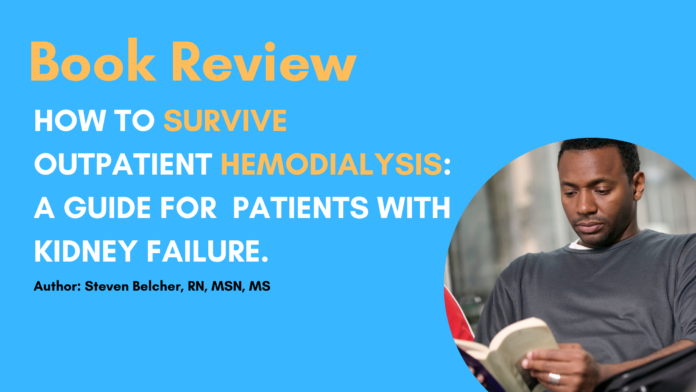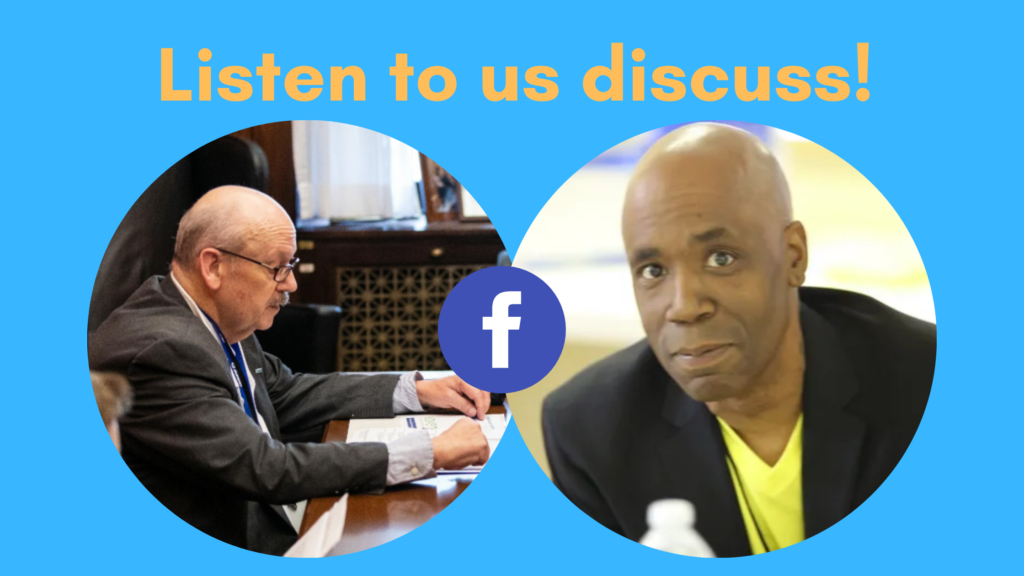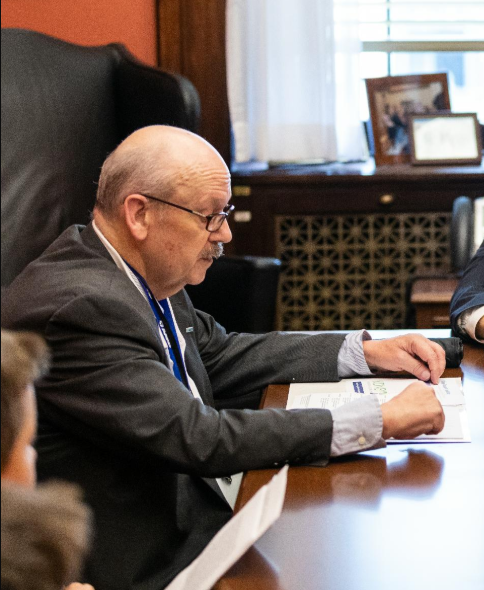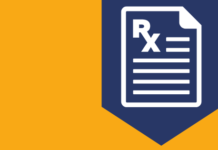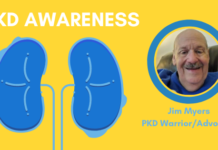1. Introduction
On March 26, 2021, I interviewed my friend, Armand Halter on the Urban Outreach Media Network. Armand is the 2021 National Kidney Foundation's Richard K. Salick Award Winner. Each year, the National Kidney Foundation presents the Richard K. Salick Advocacy Award to an outstanding kidney patient advocate. This prestigious award is given to an individual who embodies the spirit of NKF’s dear friend and former colleague, Rich Salick, a former pro-surfer who underwent three kidney transplants and faced cancer, but still put the needs of other kidney patients ahead of his own. It is the highest honor NKF bestows on advocacy volunteers.
Armand has a fascinating Kidney Story! It began when he was a 5 yr pediatric kidney patient, leading to some 30 years later when his kidneys failed. After a tumultuous experience with dialysis, he received a Kidney Transplant. The complications however did not stop there, including multiple surgeries, gout, and a reaction to his immunosuppressant medications.
Despite the obstacles Armand had to overcome, he is now a world-class Kidney Advocate! He is both an NKF Peer Mentor & a Kidney Advocacy Committee Member. His particular expertise is with the Living Donor Protection Act, both on a national and state level.
Be sure to check out this fascinating interview here:
https://www.facebook.com/UrbanHealthOutreachmedia/videos/476417260179755/Also on YouTube:
https://youtu.be/IqK3Hwbm5rQ2. An Astonishing Kidney Story
Armand was a Pediatric Kidney Patient who's Kidney Story starts at the age of 5, in the 1950's. Armand had an infection in his right kidney caused by a necking obstruction at both ends of the ureter leading from the kidney to the bladder. Several operations were performed to remove the obstruction, stretch the tube from the ureter to the right kidney, to remove the check valve that prevents back flow to the kidney and even a hernia operation was performed.
3. The Road to Kidney Failure and Dialysis
The big problem was that the backflow surgery did not take, so there was deterioration of the right kidney that took place over the next 30 years, causing the right kidney to fail and infecting the left kidney as well.
4. Pre-Dialysis Shinanigans
The story of how Armand and his wife, Kathy, learned his kidneys had failed is startling. In the early 1990's at the age of 40, Armand liked to give blood every quarter at a corporate event. He did it primarily for the free coffee and donuts. After donating blood in the morning, his wife received a call that same afternoon from the Red Cross as she was oreparing supper. She was told that Armand's blood showed he was in kidney failure and recommended he see an internist as soon as possible. Needless to say, this was very upsetting to Kathy as she felt she could lose her husband with two young boys at home, ages 8 and 11. It also became her responsibility to tell her husband once he came home.
Armand did follow up with the internist, who after some blood tests confirmed that he had End Stage Renal Disease. End Stage sounded to Armand like he was dying. At the time of the diagnosis, Armand only had 10% function in his kidneys.
5. Dialysis Days
After 6 months of trying to avoid dialysis by controlling his kidney function by diet alone, Armand had to go on dialysis. He chose peritoneal dialysis over in-center hemodialysis due to the long distance away from home (45 minutes away) and his desire not to lose any time from work (possible 3 days a week). In Armand's own words, "Peritoneal Dialysis allowed me to continue to work full-time and to do my dialysis at home. While PD maintained my life, it was extremely hard on me and everyone in my family. Each day, I had to instill 14 Liters of dialysate or about 7 exchanges. The storage space required for your monthly delivery is significant when you also consider the tubing and other supplies. Dialysis is a life saver, but it is not forever." One good thing that came from Armand's PD experience is that he learned he would not die from being on PD.
The other thing Armand learned was that dialysis is not a permanent solution for him. His forever renal replacement therapy solution was a kidney transplant.
6. Things His Dialysis Nephrologist Didn't Tell Him
One of the other obstacles Armand faced was that his dialysis nephrologist did not discuss with him the option of a kidney transplant. Instead, his dialysis nurses whispered to him that kidney transplant was an option and gave him the names of the two transplant centers in Connecticut, Yale and Hartford.
The first visit to Yale did not go well. Armand did not have good rapport with the transplant surgeon there and opposed their policy of removing both kidneys to avoid infecting the transplanted kidney. Armand had a prior set of biopsy surgeries, where he learned his kidneys were the size of raisins and he felt removal was unnecessary.
After a year's wait, he visited with a second transplant center in Hartford. This visit went much better. They told Armand he would not need to have his native kidneys removed. Subsequently, he was put on the kidney transplant wait list.
7. THE CALL
One of the memorable moments in any kidney transplant patient's life is the time you get THE CALL telling you that they have a kidney for you. Armand's call was unusual. He received the call while he was in a deep sleep and slow to respond, but he finally told them he would accept kidney.
8. Kidney Transplant
On January 22, 1996, Armand received his transplant at Hartford Hospital. His Kidney Transplant was unusual. He received his transplant from a cadaver child, so they transplanted both of the child's kidneys into Armand. For a short time after his transplant, he was able to pass urine. But then, it stopped.
9. Post Kidney Transplant Adventures
Unfortunately, as time passes, Armand was unable to pass urine. The doctors determined that his prostate had enlarged to the point where he could not pee. Initially, the resident told Armand and his wife that, "there was nothing more that they could do." After the resident had a pep talk out in the hallway with the transplant surgeon, Armand was told that TURP (Transurethal Resection of the Prostate) procedure would be done in about 6 months after my transplant was fully healed.
During that 6 months he had to self-catheterize himself at work, travel, etc. The TURP procedure went well, but the surgeon’s residents were not able to stop the bleeding in the recovery room. My transplant surgeon came to check up on me since he knew that a patient of his was in the hospital and not coming out of recovery on schedule. The urologist who had performed the surgery was already on the golf course, so he called is partner in the practice and told him to come in and personally stop the bleeding since the residents could not to it.
About 5 years after his transplant, his gout came roaring back! While doing PD, he was able to discontinue my allopurinol prescription since PD does an excellent job removing uric acid from the blood and ultimately drawing it out of all your tissues.
However, this attack did not occur in his toe as before. This time, it occurred in his wrist and was excoriatingly painful and my wrist was swollen. He went to several local doctors who thought that he had hurt himself playing sports and no improvement was forthcoming.
In frustration and extreme pain, he called his transplant center. It was a weekend and at night. The doctor on call was the head of transplant surgery and he called from a cocktail party. No problem – he correctly diagnosed Armand's issue as a gout attack and directed me to come immediately to the hospital where he met him with a Rheumatologist.
He was treated with heavy doses of prednisone and pain meds. After the inflammation subsided, he was put on my current dose of allopurinol and all has been well since.
Armand's last post-transplant traumatic experience came after that. Immunosuppressants make you susceptible to certain types of skin cancers. That is why we must visit a dermatologist on a regular basis. They also encourage the formation and spreading of warts.
Unfortunately, this happened to him and it spread all over the back of his right hand and along his fingers. The warts were large, ugly, and painful. His dermatologist recommended me to a specialist who was injecting steroids directly into warts to kill them off. This process was effective. It took many months and he felt like a pin cushion, but it worked!
The point Armand wishes to make is not that anyone should fear getting a transplant. It is the gold standard of treatment for Kidney Failure. But the journey from diagnosis of End Stage Renal Disease, through dialysis to transplantation does not end with the transplant itself. You must deal with the side effects of the immunosuppressants and everything else in this world that we all face. One step at a time. You must always be vigilant!
10. Kidney Advocacy
Armand has become one of the nation's best Kidney Advocates! 3 years ago, he contacted the National Kidney Foundation because he felt the need to help other Kidney Patients.
11. NKF Peer Mentoring Program
Armand contacted the National Kidney Foundation to volunteer in their Peer Mentoring Program. This program matches new kidney patients with veteran kidney patients who understand what they are going through now. It is truly a great program!
"NKF Peers is a telephone support program which connects those affected by kidney disease with an informed and supportive mentor who has already been through the experience. Peer mentors are trained to help kidney patients, transplant recipients, people on the transplant waiting list, living donors, or people considering living donation.
Participants are connected through an automated, free-of-charge telephone system that lets people speak with a person who knows and understands their concerns first-hand. No one discloses personal phone numbers or incurs long-distance charges. The automated telephone system allows participants to leave voicemail messages for their partners and block calls at certain hours."
https://www.kidney.org/content/nkf-peers-talk-someone-who’s-been-thereTo this day, Armand is a Peer Mentor, helping several mentees with their issues and questions.
12. Kidney Advocacy Committee
When he first applied to be a mentor, he had missed the training session for Mentors that year and was asked if he would want to become an Advocate and participate in the Kidney Summit in March of 2019.
What is the Kidney Advocacy Committee ?
"From the NKF: The National Kidney Foundation's (NKF) Kidney Advocacy Committee (KAC) and Kidney Outreach Team (KO Team), are growing groups of approximately 300 elite patients, professionals and community leaders who use their personal experiences and expertise to inform elected officials and other key decision makers on kidney-related legislation, policies, research, programs and education.
Our volunteer advocates participate in a wide array of activities to change kidney disease health policy to improve care, quality of life, increase kidney transplantation and treatment of kidney disease. Our advocates meet with federal and state elected officials to build support for legislation in Congress and their state capitals – such as preventing insurance discrimination against living organ donors, supporting living organ donation, and increased funding for programs to research and treat CKD.
Additionally, they educate other Americans about the risks of developing chronic kidney disease (CKD) and bring to light the challenges of living with CKD. Advocates serve as speakers on panels, co-chairs of conferences, focus group participants, and patient research reviewers for NKF, as well as other stakeholder organizations including government, healthcare providers, and other kidney groups.
Whether you are a patient, caregiver, living organ donor or healthcare professional we need YOU to make better kidney policy possible."
https://www.kidney.org/advocacy/advocateArmand was asked if he would want to become an Advocate and participate in the Kidney Summit in March of 2019. He refers to the Summit as "a great experience.'
The NKF had fully prepared materials prepared to support the face-to-face meetings with Congressional members and their staffs to review the legislation that would help kidney patients. The training sessions that NKF provided reviewed the applicable statistics and details of the requested legislation. It was a lot more support that I had anticipated.
"The only thing that I had to do really was to tell my “kidney story” as I had lived it and impacted my family. Certain requests were relatively easy to discuss at the National Level such as increased funding for National Institute of Health programs, but other seemingly “no brainers” such as a Living Donor Protection Act (LDPA) to preclude insurance discrimination against altruistic donors proved more vexing."
13. The Living Donor Protection Act (S 377/HR 1255)
The Living Donor Protection Actwould prevent discrimination against living kidney donors in two ways:
1. It prevents insurance companies from cancelling, charging higher premiums or otherwise altering a living donor's life, long-term care or disability insurance because someone has donated a kidney;
2. It prevents employers from firing, demoting or otherwise altering a living donor's employment status because he/she has donated a kidney.
3. The Central Board of Accounts has found this Bill will incur no costs to the American Taxpayers.
From the NKF:
"We have a great need to remove the barriers to Kidney Transplants:
• There are over 100,000 Americans on the kidney transplant wait list
• Only 22,817 received a Kidney Transplant last year (20% conversion rate = failure)
• Every day 12 people die waiting for their transplant (Bill Murray)
• Over 3000 new patients people are added to the list each month to the kidney waiting list, that's one every 14 minutes.
• Living donation is the fastest way to a transplant & has the best outcomes for patients. However, living donors face barriers to donation & discrimination afterwards.
THE NKF ASKS CONGRESS TO PRIORITIZE MAKING MORE ORGANS AVAILABLE FOR TRANSPLANT BY SUPPORTING LIVING DONATION & ENDING INSURANCE / EMPLOYMENT DISCRIMINATION VS LIVING DONORS
THE BILL:
• This is a bipartisan bill, sponsored by Senators Kirsten Gillibrand(D-NY) and Tom Cotton (R-AR) and in the House by Congressman Jerry Nader (D-NY) & Jaime Herrerra Beutler (R-WA), prohibits discrimination against living donors in the provisions and rates of life insurance, disability insurance & long term care insurance;
• The American Counsel of Life Insurers supports this bill."
https://www.kidney.org/content/taking-action-section-living-donor-protection-act;
https://www.kidney.org/news/nkf-applauds-congressional-champions-legislation-to-protect-living-organ-donors;
https://nkf.egnyte.com/dl/I5quHpTTS1/?
(2021 NKF LDPA Fact Sheet )
In Armand's own words, "Although an LDPA costs no money, it has languished at the National Level for years. This was primarily due to philosophical differences that insisted that regulation of Insurance was a State issue as opposed to a Federal issue. That is when I made the decision to contact NKF Connecticut to bring this issue to the local level in the State of Connecticut."
14. LDPA4CT
Armand and the NKF of Connecticut have made great strides in passing LDPA4CT.
In Armand's own words, "n Connecticut you cannot mention NKF without adding the name Marcia Hilditch. I reached out to her and invited her to join me and other advocates in my local district meeting with my Congressional Representative. That meeting went very well, and I asked her to help start the process of to enact a Living Donor Protection Act for Connecticut (LDPA4CT) – there is more than one way to skin a cat. Since we were stymied at the National Level for years to gain a LDPA, then we would have to do it one State at a time. Corporate NKF was helpful to our local effort and identified Matt Hallisey as one familiar with the process of enacting legislation within Connecticut. NKF also provided state level materials to help in the effort and the names of other Advocates within Connecticut who could help. Turned out that two other Advocates, Robin Gilmartin and Diane Mack, had already come to the same conclusion regard enaction of a LDPA in Connecticut and had already reached out to their State Senator and State Representative. We were well on our way now. NKFCT helped identify State legislative leaders and staff members and was instrumental in establishing these initial meetings that were key to building support for the LDPA4CT. In the 2020 Connecticut Legislative Session, a LDPA was introduced and unanimously endorsed by the Insurance and Real Estate Committee. However, COVID-19 reared its ugly head and interrupted the 2020 session before votes on the LDPA could be cast in the State House and Senate. At the start of the 2021 Session, I can report that we have bipartisan and bicameral support for an LDPA. Legislators have introduced a total of THREE proposed bills this session. The Insurance and Real Estate Committee has developed a full to enact a LDPA4CT and testimonies have submitted. With unanimous support of the committee, this bill now moves to the Connecticut Legislature for passage by both houses and then on to the Governor for final signature.
NKF Connecticut now has a fully functional Advocacy Program to garner support of legislation to benefit kidney patients on the State Level. With the assistance and support of NKF Corporate we will continue to advocate for our Connecticut Kidney Patients. 33% of Americans have Kidney Disease, but only 10% know it! "
Armand gave his testimony in front of the State of Connecticut Insurance and Real Estate on HB-06387 on behalf of LDPALDPA4CT on February 11th, 2021:
"My name is Armand Halter and I reside in Ledyard, CT since 1974. I am an Advlocate for the National Kidney Foundation (NKF) and a Mentor in the NKF Peer Mentoring Program where I assist Kidney Patients with End Stage Renal Disease (ESRD) transition from diagnosis to dialysis and ultimately transplantion. I am a Kidney Transplant Recipient of 25 years.
Each year in the State of Connecticut approximately 1000 patients are on a waiting list to receive a kidney transplant. Only about 25% of those will receive their gift of renewed life this year. The rest will have to wait until their number comes up or they can find a Living Donor. Of those waiting, about 35-50 will pass away.
Living Donors are hard to come by and many are discouraged from from donation when they are warned that they may experience discrimination by insurance companies just because they are a Living Kidney Donor. We must do all we can to encourage living donation and help close the gap between those receiving their transplant and those still waiting.
Many States have passed their own Living Donor Protection Act (LDPA). The status of other States' are below:
• 14 States have passed a LDPA: Arizona, Arkansas, California, Colorado, Idaho, Illinois, Kansas, Maine, Maryland, Missouri, New York, Oklahoma, Oregon, and Utah
• 1 State Legislature has passed a LDPA and awaits Governor Signature: New Jersey.
It's time for Connecticut to pass this important legislation for those Kidney Patients waiting in Connecticut for their Gift of Life!"
Recently, Armand has published two Letter to the Editor on this subject:
https://www.nhregister.com/opinion/article/Letter-Protect-donors-16035541.phphttps://www.nhregister.com/opinion/amp/Letter-Protect-donors-16035541.php?__twitter_impression=trueHere is Armand's most recent updates on the progress of the Connecticut Bill:
"Great news this week! The Living Donor Protection Act(LDPA, HB6387) was voted out of the CGA INS Committee with a unanimous vote! Please ask your State Representative and State Senator to support this important legislation!#mykidneysmylife#donatelife#ldpa4ct."
"File Copy 152 (for HB 6387, LDPA) was released this morning. It’s what the Connecticut House will actually cast its votes upon - hopefully, as soon as next week. At the end, the File Copy includes a plain English summary, summary of votes and testimonies and fiscal impact.
https://www.cga.ct.gov/2021/fc/pdf/2021HB-06387-R000152-FC.pdf"
Congratulations to Armand and we look forward to the day when the LDPA4CT became law.
15. Conclusion
Armand has a very compelling Kidney Story that demonstrates time and again his resilience in overcoming adversity. He is a dedicated and successful Kidney Advocate who has stood up for all Kidney Patients. I am very proud that he is my friend!
16. References
• Links to Salick Award
• Links to the March 26th, 2021 Interview
https://www.facebook.com/UrbanHealthOutreachmedia/videos/476417260179755/Also on YouTube:
https://youtu.be/IqK3Hwbm5rQ• Links to Information on Ureter Necking
https://link.springer.com/article/10.1007/BF02756030https://www.nejm.org/doi/10.1056/NEJM195903262601304





